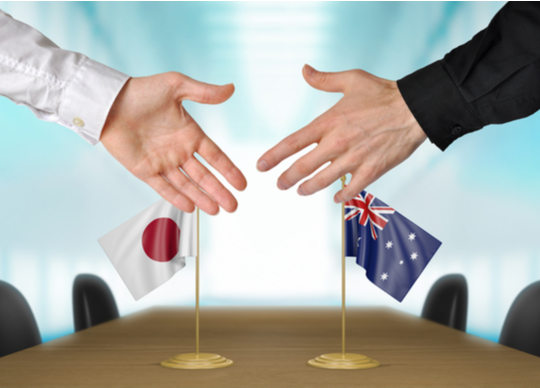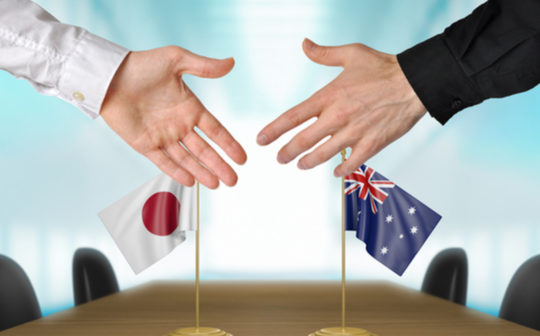
By Staff Writer.
Australia has significantly deepened its security and economic ties with Japan after signing the landmark Reciprocal Access Agreement (RAA) last week. The high stakes agreement is Japan’s only reciprocal Status of Forces Agreement and facilitates enhanced cooperation and interoperability between the Australian and Japanese Defence Forces.
After cancelling his in-person visit, Japanese Prime Minister Fumio Kishida signed the RAA during a virtual event with Scott Morrison on Thursday.
“This complements the suite of defence, security and partnership agreements that our Government has been building over the last three years to keep Australians safe and to keep our region secure,” said Prime Minister Morrison.
“The Reciprocal Access Agreement, as it is known, will usher in a new chapter in advanced defence cooperation between Australia and Japan to deal with a new and even more challenging environment, particularly within the Indo-Pacific.”
The RAA increases cooperation in three key areas – trade and economy, security and defence, and the Indo-Pacific.
Both leaders committed to a free, fair, inclusive, open, transparent, and rules-based trade and investment environment. The Prime Ministers voiced support for implementing the Comprehensive and Progressive Agreement for Trans-Pacific Partnership and the Japan-Australia Economic Partnership Agreement.
But it was the commitment to increasing security and defence cooperation that captured the headlines.
“But what it (the RAA) practically means is that Australia’s Defence Forces and Japanese forces can act and operate together seamlessly,” said Mr Morrison.
“We can be in each other’s countries, we can be training in each other’s countries, we can be on each other’s platforms. We can be completely interoperable between what we can do and how we deploy together.”
The RAA will facilitate cooperative activities such as joint exercises and disaster relief operations, including those of greater scale and complexity while improving the interoperability and capability of the two countries’ forces.
The two leaders also highlighted the importance of existing partnerships in the region, including the quadrilateral cooperation between Japan, Australia, India and the United States.
The Prime Ministers welcomed the United States’ role across the Indo-Pacific. Japan voiced support for the new Australia-UK-US security partnership, AUKUS. But serious concerns about unlawful Chinese activity in regional waters were noted.
“They reaffirmed their strong objection to China’s unlawful maritime claims and activities that are inconsistent with the UN Convention on the Law of the Sea,” a post-signing joint statement said.
“They shared the intention to remain in close communication about the situation in the East China Sea and expressed strong opposition to any destabilising or coercive unilateral actions that seek to alter the status quo and increase tensions in the area.”
Also flagged were concerns about China’s treatment of Uyghur and other Muslim minorities in Xinjiang and North Korea’s ongoing nuclear weapons and ballistic missiles development.
Meanwhile, both Prime Ministers agreed to step up cooperation on economic security, supply chain security, critical infrastructure security, and illicit cyber activity.
Scott Morrison said signing the RAA was a remarkable achievement for both countries.






